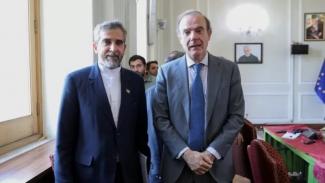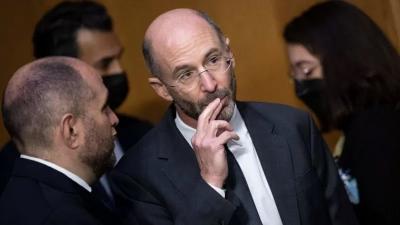Negotiations aimed at returning the United States and Iran to the Nuclear deal (JCPOA) and lifting sanctions on Iran in the Austrian capital, Vienna, came to a standstill about three months ago. On June 27, Iran and the United States confirmed that a new round of "indirect" talks between the two countries on the remaining disputes over the revival of the deal would be held in Doha, the capital of Qatar. According to the latest news, this round of talks, which took place in a different framework from what was taking place in Vienna, without the presence of the 4 + 1 countries (Britain, China, Russia, France plus Germany) and with the presence of Enrique Mora, on behalf of European countries, Robert Mali, the US special envoy for Iran, and Ali Bagheri Kani, representing Iran, began and ended without a result. Enrique Mora tweeted: "We had two days of intensive talks in Doha. Unfortunately, the progress that the European Union hoped for as the coordinator of the talks has not yet been achieved."
Despite the quick and fruitless end of the Doha talks, Iran's acceptance of the resumption of talks without the presence of China and Russia, despite extremist slogans, and sitting at a table with the US envoy could indicate the fact that the Islamic Republic is in a state of emergency. Many political forces believe that the resumption of talks could be a good start in resolving foreign policy problems, the nuclear crisis, and lifting sanctions despite harsh slogans and fruitless extremism over the past year. Fundamentalists who oppose the JCPOA, believe that the US and Europe aim to bypass China and Russia and force Iran to accept a weak agreement. But it is highly unlikely that a final agreement - whatever it may be - will be reached without the participation of either party.
What is certain is that Iran is in a critical economic situation and is worried that it will face internal unrest if the deal is not revived. The United States, on the other hand, is engaged in a proxy war in Ukraine and does not want to lose focus on the Ukraine issue as tensions with Iran continue in the region. Therefore, it can be said that the need for a bilateral agreement has been further strengthened.
From what has been said, it seems that the two sides have come to the conclusion that, taking into account the concerns of the other side, an agreement should be reached. But to what extent will this consideration include US concerns about Iran’s regional policy and missile and drone programs, and Iran's concerns about the complete, real, and verifiable lifting of sanctions, as well as its security, that is the point that can draw their relationship in the long run.


Add new comment